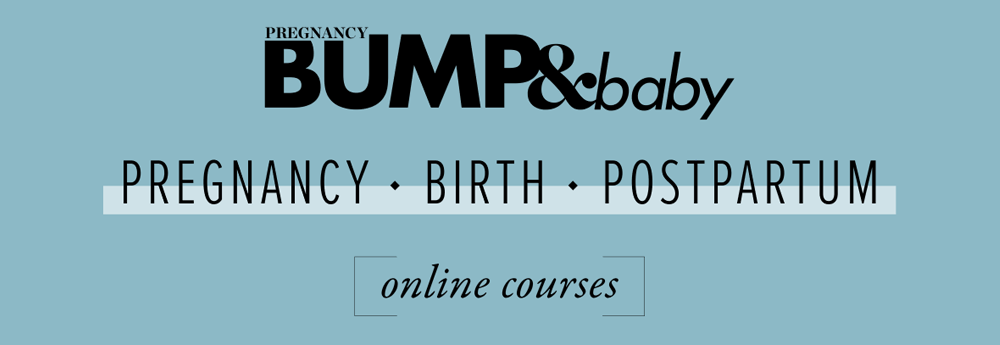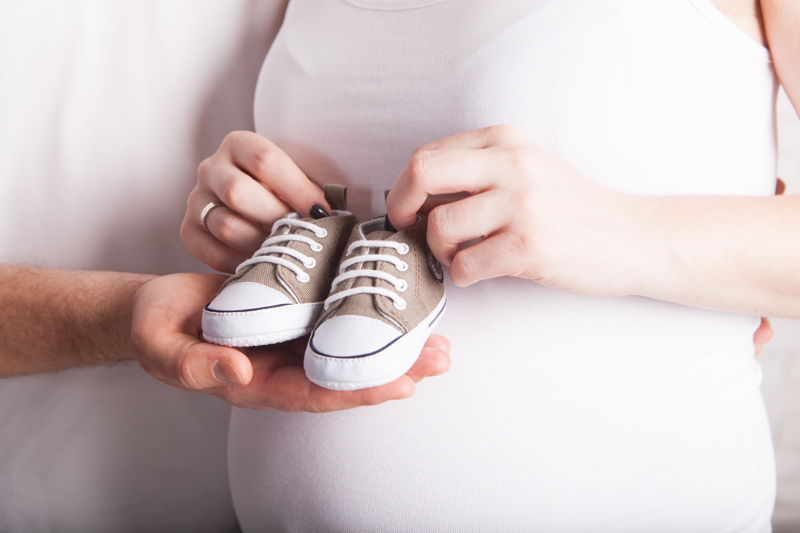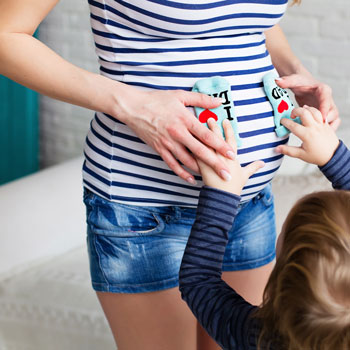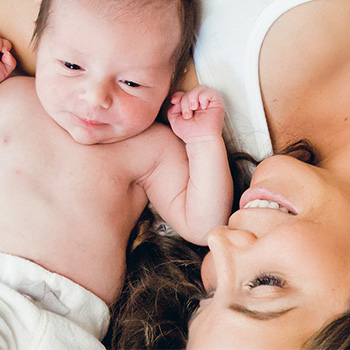Sometimes during your pregnancy you may not have the energy, but you won’t regret it if you take a tip from the Boy Scouts and BE PREPARED.
Planning and organising
Biologically, the last months of pregnancy are for slowing down. Ironically, though, they’re also full of activity because you’re nesting. You may unexpectedly dejunk your bathroom cabinet or
paint the garage – projects not remotely connected with the baby.
The following list should help you keep your focus:
- Get the nursery and all things baby-ready
- Cook extra every night and freeze portion-size dinner leftovers for those first post-labour weeks.
- Cover your side of the bed with a plastic mattress protector in case your waters break.
- Pack your hospital bag with your birthing plan, toiletries, nightie, slippers, clothes to go home in, sanitary pads, nursing bras, baby bottle, nappies, baby clothes, baby blanket, camera, water and snacks.
- Plan the quickest route to the hospital, in traffic and off-peak.
- Do a trial run, taking note where to park and which door to use.
- Keep enough petrol in the car to get you to the hospital.
- Keep the mobile phone battery charged.
- Write down phone numbers for alternative transport: taxi, friends, neighbours.
- Organise household help – perhaps people could give you an hour of vacuuming instead of a pair of booties?
- Compose a list of baby names.
- Install a car seat to bring the baby home. (Many car seats cater for newborns up to 36 months, though a baby capsule is a popular choice for the first 3 months because of its portability
- Get plenty of rest. This is your last chance to sleep through the night for a long time.
[bg_contents bgcolor=”#BDECB6″]
It takes time to become a mother. Not the nine months for the baby to grow, but for your mind to wrap around the concept of “I’m going to be a mum”. Like the pre-wedding jitters, it’s common to get a mini identity crisis pre-baby.
[/bg_contents]
Renting baby gear
Renting baby gear makes a lot of sense. Babies grow fast and their needs change accordingly.
Consider hiring the following:
- Baby capsule
- Bassinette
- Sling
- Front-pack (kangaroo pouch)
- Breast pump
- Baby toys and books
Antenatal classes
Antenatal classes teach you how to look after yourself in pregnancy, about the different labour options and caring for your newborn. Realistically, it’s a crash course and you’ll graduate feeling both that you’ve learnt heaps and that you don’t know enough. It’s a great forum to ask questions, voice concerns and share your experiences. You will also meet other local couples, who will
form your support network in the first year of parenthood, and often beyond.
Breastfeeding classes
Both your own midwife and the midwife at the antenatal classes will teach you the basics of breastfeeding, but breastfeeding classes give you additional information and confidence. Make room in your heart It takes time to become a mother. Not the nine months for the baby to grow, but for your mind to wrap around the concept of “I’m going to be a mum”. Like the pre-wedding jitters, it’s common to get a mini identity crisis pre-baby. Anxiety and anticipation go hand in hand, mixed with all your pre-natal hormones, so talk to others about your feelings.
Your other children
Make sure your children understand the brother or sister they’re getting is a baby, not an older sibling. Show them photos of themselves when a baby and tell them about the things they used
to do (cry, spill, pull funny faces). You may want to read them a book about the facts of life. Decide who will look after your children while you’re in labour: is it going to depend on the time of day (morning, afternoon, middle of the night) or the day of the week? Have a back-up person for every option and let your children know about the arrangements. If they’re going to a babysitter, help them pack their overnight bags and sneak in a surprise present. If they’re staying at home, stock up on their favourite food and brand-new activities (colouring books, building blocks, DVD). Where possible, involve your children in getting ready for the baby. Let them fold the layette and help you pack your bag. Thank them for sharing their old cot and toys with their new brother or sister.
Remember to check the general condition of the baby things in your storeroom. If the gap between your baby and your youngest child is substantial, check the safety requirements of any cots, prams or car seats you’re planning to re-use.
When the baby’s here
Expect:
- Total and absolute change to your schedule, body, emotions and relationships
- Turmoil and chaos
- No me-time
- Physical exhaustion
- Overwhelming love and a sense of fulfilment
In a nutshell, it’s worth it!
More About Preparing For A New Baby From BUMP&baby:
Everything You Need To Know About Choosing A Pram
Everything You Need To Know About Car Seat Safety
BUMP&baby
BUMP & baby is New Zealand’s only magazine for pregnancy and early babyhood. Our team of mums and mums-to-be understand what it’s like to be pregnant in this connected age, and that’s why BUMP & Baby online is geared toward what pregnant women and new mums really want to know.
Other articles of interest
How to avoid sibling jealousy before the new arrival
It’s fairly common for siblings to feel slightly resentful, even angry at the arrival of a new baby, but with a little forethought, you can make this transition less stressful
5 weird (but normal!) things about newborns
Newborns are cute, cuddly, and oh-so-soft – everything you may have pictured. But there are some downright strange things you may experience with your newborn, that the books either didn’t mention or glossed over.








